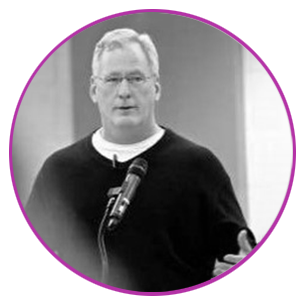In our Expert Insights Series, we ask supply chain thought leaders to share their views on meaningful questions. This time, we talk about books.
With the supply chain industry constantly changing and evolving, supply chain management has become increasingly important. Leaders need all the tools they can get to sharpen their skills – and they must be committed to continuing to learn.
You may nurture your professional development throughout your career by attending conferences and events, networking with industry peers, learning from experience and practical applications, and more. But sometimes it’s a good idea to take it old school – get a book, explore some fresh and timeless insights. Today a reader, tomorrow a leader!
As with any evolving business discipline, there will always be a need for insightful and engaging publications. And if you’re looking to line your bookshelf with some thought-provoking titles, you’re in the right place.
There are many authors and worthwhile reads to explore in the world of supply chain; we asked industry experts to share some of their favorite ones and why they like them / would recommend them. Here are the books the experts endorse:
“There are so many books, and they are all very good. However, I found a great deal of value out of reading Digital Supply Networks by Amit Sinha, Ednilson Bernardes, Rafael Calderon and Thorsten Wuest.
We need to really evaluate the old fashioned and linear supply chain model and transform it to deal with the era of disruption. This book gave valuable insight into the process.”
“Strategic Supply Chain Management: The Five Core Disciplines for Top Performance by Shoshanah Cohen/Joseph Roussel.
The key reason why I recommend this book – regardless of how old it is (though new editions have published), is that this was the first book that viewed supply chains conceptually as they should be.
Supply chains are like ecosystems that work in a systemic way within the actual business we manage and with other businesses together. Still to date, many who start in supply chain from an entry point in operative supply chain management and get promoted in a fragmented organization, don't understand how important it is to view our supply chains holistically and this book is a good first guideline to learn all these. Then they can pile on further knowledge that can enrich these building blocks. I could even recommend it to senior professionals as a "check-back on the basics option" from time to time, to ensure they don't forget how simplicity in a systemic view can help them solve issues that look very complex at first (or even second) sight... especially in turbulent times like we have nowadays.”
“Introduction to Materials Management by JR Tony Arnold, S. Chapman, Lloyd M. is like the holy book for all Supply Chain professionals, with principles of planning explained in a simple structured way that all professionals can easily comprehend.”

Larry Lapide, Research Affiliate at MIT. Columnist in Supply Chain
Management Review and The Journal of Business Forecasting.
“My favorite books on supply chains are: The Travels of a T-Shirt in the Global Economy [by Pietra Rivoli] and Moveable Feasts: From Ancient Rome to the 21st Century, the Incredible Journeys of the Food We Eat [by Sarah Murray].
Best book in forecasting is: The Signal and the Noise: Why So Many Predictions Fail - But Some Don't [by Nate Silver].”
“I have 6-7 books that I consider seminal works. Orchestrating Success, and Sales and Operation Planning Workbook [by Ling, Goddard]; The Goal [by Eliyahu M. Goldratt]; The Signal and the Noise: Why So Many Predictions Fail - But Some Don't [by Nate Silver]; Histories of the Future: Milestones in the Last 100 Years of Business Forecasting [by Jonathon P. Karelse]; The Machine that Changed the World [by James P. Womack, Daniel T. Jones, Daniel Roos]; Zero Inventories [by Robert W. Hall] - and I now have some team members reading The World is Flat [by Thomas L. Friedman].
The range of books covers S&OP, inventory management, demand planning, and production optimization. It is a bit weird that during the past year I have been referring to The Goal a lot - suggesting to anyone that would listen, that the bottleneck in the global supply chain was likely to float from containers to space on vessels, to port, and then move inland to carriers and warehouses. Unfortunately, my expectation was more right than not.”
“My book Histories of the Future: Milestones in the Last 100 Years of Business Forecasting [by Jonathon P. Karelse] looks at why we forecast the way we do, rather than just looking at the “how”. I think a curiosity to ask these types of questions is a critical part of what makes an effective supply chain practitioner successful.”
“Operations Management (7th Edition) by Nigel Slack, Alistair Brandon-Jones, Robert Johnston.
This book (or eBook) gives a lot of clarity to a lot of operations management concepts.”
“My favorite novel on supply chain is Strategic Supply Chain Management: The Five Core Disciplines for Top Performance. I believe this book does a great job showcasing how proper business processes and insights can create a strong supply chain strategy. Authors Shoshanah Cohen and Joseph Roussel present real-world case studies at the end of each chapter to show how having a robust end-to-end supply chain strategy is critical for success in an uncertain economic and geo-political environment.”

Philip Auinger, Career Mentor for Supply Chainers at Career Companion e.U.
“From Source to Sold, by Radu Palamariu and Knut Alicke.
I'm not the only one who likes it as it was #1 on Amazon for a few weeks. The book is a series of short inputs from supply chain executives around the world. They share their thoughts on transformation, leadership and strategy.
I like it because it serves as inspiration for current and future leaders to put the human aspect more into the center of what they are doing.”
Stay tuned for more in our Expert Insights Series! As we share views and opinions from thought leaders and industry peers on all things supply chain.










